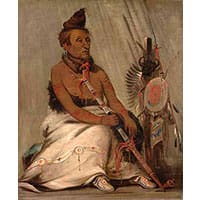
George Catlin and Native American Smoking Pipes
George Catlin was born in 1796. He taught himself how to paint and became an accomplished artist. In his early years, he painted portraits and created lithographs of sites in New York. Following his first trip into Native American territory in 1830 he became one of the first people to document Native American smoking pipes and their uses. He provided commentary on the varieties of pipes and the specific decorations associated with various tribes.
Catlin’s study led him to believe that the simple tube ‘barrow’ pipes were older than more elaborately decorated pipes. Archaeological studies from the 20th century confirmed his theory. Native Americans created some of these early ‘barrow’ pipes from stalactites with a hole drilled through them.
Later Natives made stone bowls and added hollow reed stems to them. Sometimes they drilled a small hole in part of the pipe. They strung a piece of Deerskin Leather Lacing through the hole and used it to hang the pipe around their neck.
Discovery of Catlinite
Catlin admired the rich red stone that the Native Americans of the Plains used to make their pipes. When he heard about the source of this stone, he visited the site in 1836. Though he was not the first European to visit this source, he did provide the first written description of the stone. He sent a sample of the stone to mineralogist Dr. Charles Thomas Jackson. Jackson analyzed the sample and named the mineral Catlinite after George Catlin.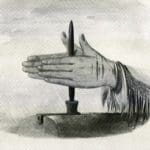
Catlin wrote about how Native Americans made their pipes and bowls. He noted that they used simple knives to shape the stone into a bowl. To create the bowl depression, one person applied a sharp stick where he wanted to drill the bowl. He rotated the stick between his hands while sand and water were applied to the stone. A second person held a block of wood on the top of the stick to keep it from slipping. When the Natives had access to metal, they heated metal wire and used it to burn a channel in a wooden pipe stem.
Documenting Native American Pipes
Because he was an artist, Catlin made drawings and paintings of Native American chiefs with their prized smoking pipes. His art depicts pipes with stems that feature porcupine quills and bird feather decorations. Native American women did the quillwork. Men sometimes engraved or carved the undecorated parts of the stems near the bowl with designs.
Catlin’s work also provides evidence of unusual, well made effigy pipes. Animals and human forms were carved into the pipe bowls, sometimes very elaborately. Sometimes Native Americans made pipes with double bowls or inlaid them with pewter or lead.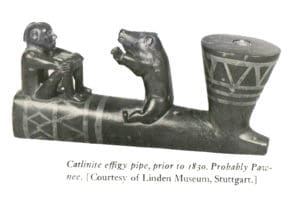
These pipes were status symbols and considered ceremonially protective. Groups of Natives from one tribe commonly traded ‘Calumets’ or peace pipes with other groups. Trading and similarity of pipe styles makes it difficult to determine which group created certain pipes.
Native Americans from the Plains originally smoked a blend of Red Willow bark mixed with Sumac leaves and a small amount of tobacco. They made pouches to carry their smoking mixture from the skins of small animals. Catlin documented pouches made from beavers and ducks. They used the attached head to hang their pouch from their sash or belt. They also carried their pipes, flint, steel and wood in bags like these.
Find Catlinite and Pipes at The Wandering Bull
We offer unworked pieces of Catlinite (or Pipestone) that you can use to create your own pipe, or other carving. We also sell a selection of Pipes made from Pipestone from Minnesota. Read more about Catlinite History!
Most of the information found in this article comes from Indian Art in Pipestone: George Catlin’s Portfolio in the British Museum Ed. by John C. Ewers © 1979 British Museum Publications, Ltd.
-
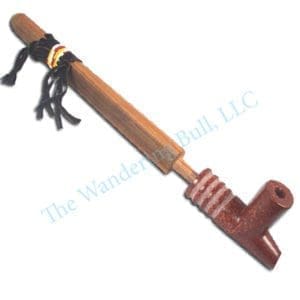
Four Winds Pipe
Price range: $180.95 through $236.95 Select options This product has multiple variants. The options may be chosen on the product page -
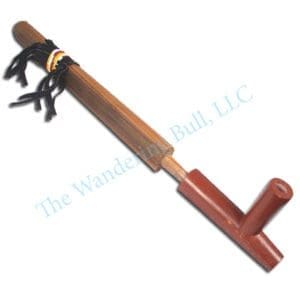
Plains Pipe
Price range: $160.95 through $220.95 Select options This product has multiple variants. The options may be chosen on the product page -
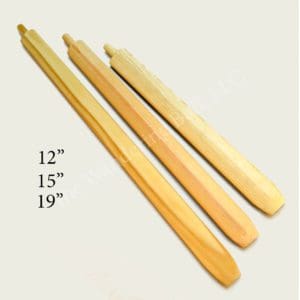
Wooden Pipe Stems
Price range: $10.95 through $12.95 Select options This product has multiple variants. The options may be chosen on the product page -
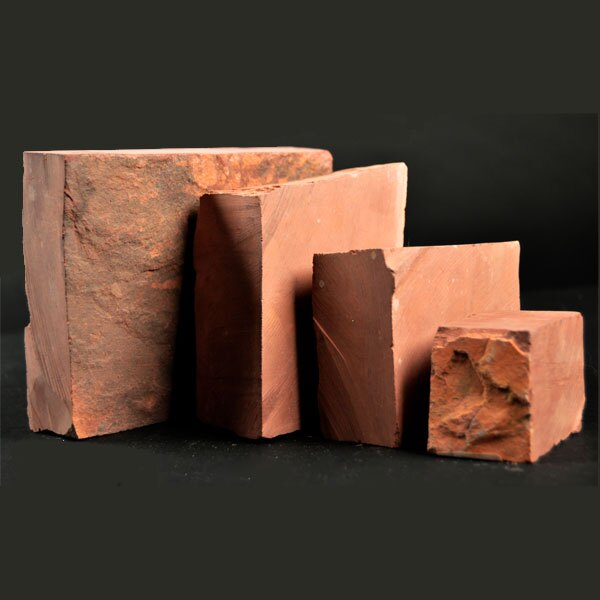
Catlinite – Pipestone Blocks
Price range: $9.95 through $95.95 Select options This product has multiple variants. The options may be chosen on the product page
